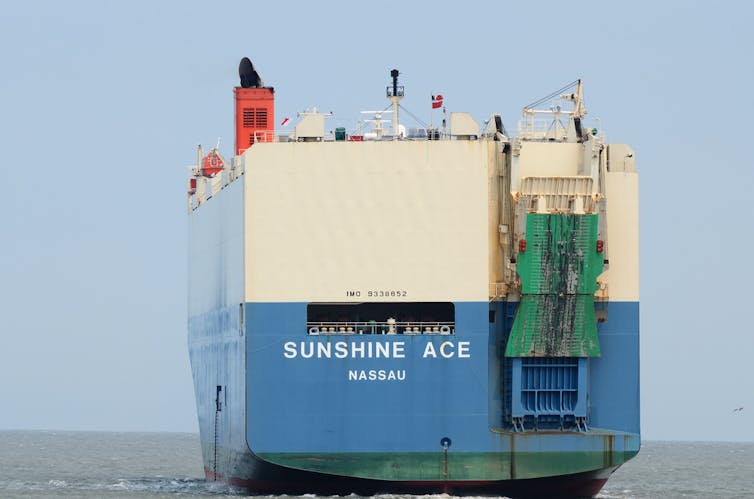The first ship to reach the area of Indian ocean being searched for the missing flight MH370 is the Norwegian commercial car carrier, the Höegh St Petersburg.
At the request of the Australian Maritime Safety Authority (AMSA), the ship diverted its voyage from Mauritius to Melbourne and searched for debris with spotlights overnight.
Customary international law has long recognised that all mariners have a duty to come to the assistance of individuals in distress on the sea.
While the duty is not absolute - in the sense an individual is not required to risk their own life - maritime law outlines there is a “positive requirement” where possible to provide assistance.
This customary international law duty is reflected in the United Nations Convention of the Law of the Sea which states in part:
Every State shall require the master of a ship flying its flag, in so far as he can do so without serious danger to the ship, the crew or the passengers:
a) to render assistance to any person found at sea in danger of being lost;
b) to proceed with all possible speed to the rescue of persons in distress, if informed of their need of assistance, in so far as such action may reasonably be expected of him.
The seriousness with which this provision is viewed by the international community is underscored by Article 18(2) of the Law of the Sea Convention. Rendering assistance to those in distress constitutes an exception to the regime of “innocent passage” - the part of the law that allows a vessel to pass through the territorial waters of another state. As states are usually reluctant to accept any conditions that might impact on the sovereignty of their territorial waters, the clear acceptance of this one demonstrates the importance of this duty.
While the law clearly refers to a duty of ships to render assistance to individuals in distress at sea, there is a range of other international legal conventions that clarify the obligation further and support the requirement that countries cooperate with each other.
In this case, the relevant convention is the 1979 International Convention on Maritime Search and Rescue (ICMSR), under which states assume coordination of search and rescue for areas of ocean adjacent to their territory. This does not mean that only that state has responsibility to rescue, but rather that it will typically act to coordinate search and rescue activities.
Parties shall ensure that assistance be provided to any person in distress at sea. They shall do so regardless of the nationality or status of such a person or the circumstances in which that person is found.

Thanks to Australia’s relative remoteness, large tracts of the Indian and Southern oceans fall under its responsibility to coordinate search and rescue operations.
In the case of missing MH370, countries will treat the disappearance of the vessel as a search and rescue mission until circumstances change.
As Australia has taken responsibility for search and rescue coordination, this allows AMSA to request other participating states to work with it, as well as to request nearby vessels, such as the Höegh St Petersburg, to assist.
While the Norwegian vessel is not strictly under Australian control, Norway as the vessel’s flag state, and as a party to both the Law of the Sea Convention and the ICMSR, could compel the vessel’s compliance, if Australia requests it. Failure to comply could see the vessel’s master prosecuted under Norwegian law.
In reality, prosecuting the master of a commercial vessel would be exceedingly rare. Most seafarers take their duty to render assistance at sea very seriously, and there is no reason to believe there has been anything other than the fullest cooperation from all vessels and aircraft involved in the search.
In the present circumstances, given the length of time that has elapsed since the aircraft was lost, it’s likely that the Höegh St Petersburg be released from the search when HMAS Success comes on station and is able to search the area of interest.

